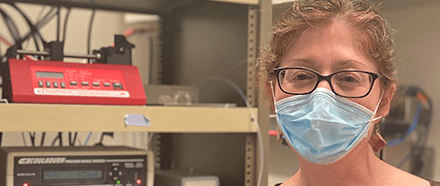Dear Editor:
I am writing this letter on behalf of my colleagues and fellow audiologists who conduct auditory processing evaluations on children.
Earlier routine testing has become a matter of great importance to those of us who feel strongly and committed to evaluating young children for Central Auditory Processing Disorder (CAPD). We feel that not conducting these evaluations would be doing a great disservice to youngsters, particularly for those below age 7 or 8, because it would be neglecting the early identification of potential auditory processing problems.
We are aware that children demonstrate auditory processing deficits as young as age 3.6 or below. Further, we know that these problems in young pre-school children can be remediated. As evaluators, we often see children who struggle with:
- Learning sound-letter associations;
- Hearing words clearly;
- Frequently asking “What?”;
- Unable to listen to speech in the presence of noise;
- Difficulty following a conversation because it goes too fast, and
- Problems recognizing sounds in words or decoding a word by its component sounds.
These children are at risk. If we wait until age 7 or 8, as some educators advise clinicians and parents to do, we are denying those children the benefits of early intervention, remediation, treatment, and the right to a Free and Appropriate Education (FAPE). Such intervention at an early age, which should include the use of an FM system, would help alleviate or reduce the symptoms that will plague these youngsters as they develop. Early intervention will enable students to achieve academic success.
Research in early intervention and the benefit of FM usage in stimulating neural plasticity1 provides evidence that treatment, management, and acoustic support stimulate brain development and ensure that the brain will receive “clear speech.” Researchers Nina Kraus, PhD, Jane Hornickel, PhD, and colleagues assessed the utility of FM units in use for one year on auditory neurophysiology and reading skills in children with dyslexia. The research team found that FM systems use reduced the variability of sub-cortical responses to sound. Such improvement was aligned with concomitant increases.
Early intervention ensures that students do better in the first, second and third grades–the early critical reading and learning years. To neglect these youngsters during this critical period would be to deprive them of neural plasticity for brain development. If we do nothing and simply wait, these children will fall farther behind, jeopardizing their overall reading skills and academic learning. It is foolish to think that because the auditory system is still developing, it is not appropriate to test children. Do we wait until children reach later ages to test their hearing, articulation, or their language, given what we know about development?
Years ago, we didn’t test children’s speech articulation until the second grade. That is no longer the practice. We now know that if a child receives early therapy, his/her symptoms can be ameliorated, thereby reducing the amount of therapy needed later on. With regard to hearing testing, we try to identify hearing loss as early as possible and to provide hearing aids soon after, because we know that waiting will cause major deficits. We also now know the auditory developmental markers and what to expect of young children’s auditory skills because of newer tests and measures. If a youngster at the age of 4 or 5 is not meeting those age-appropriate norms, then why not reach out and provide intervention in order to prevent further delays and wider wedges between their development of reading and language skills? It makes sense and is good practice.
There are no published research articles that determine the best age for CAPD testing, nor has any evidence been produced to indicate the age at which one can begin to test or to set age-appropriate levels. Although we do not know the earliest that a child can be tested for CAPD, or when intervention can be begin, it is surely long before they reach 7 or 8 years. There are available tests with criterion reference levels that can provide guidance before age 7 or 8. We need to adopt best practices for the benefit of these children.
We urge our fellow audiologists to rethink the age at which auditory processing disorders can be evaluated, and we propose that CAPD testing begin earlier than is the current practice.
–Donna Geffner, PhD, CCC-S/A, Donna Geffner and Associates
Correspondence can be addressed to HR or to Dr Geffner at: [email protected]
References
1. Hornickel J, Zecker S, Bradlow A, Kraus N. Assistive Listening Devices Drive Neuroplasticity in Children with Dyslexia. PNAS. 2012; 109:41 (10) [Oct]: 16731-16736
Image credit: © Monkey Business Images | Dreamstime.com





